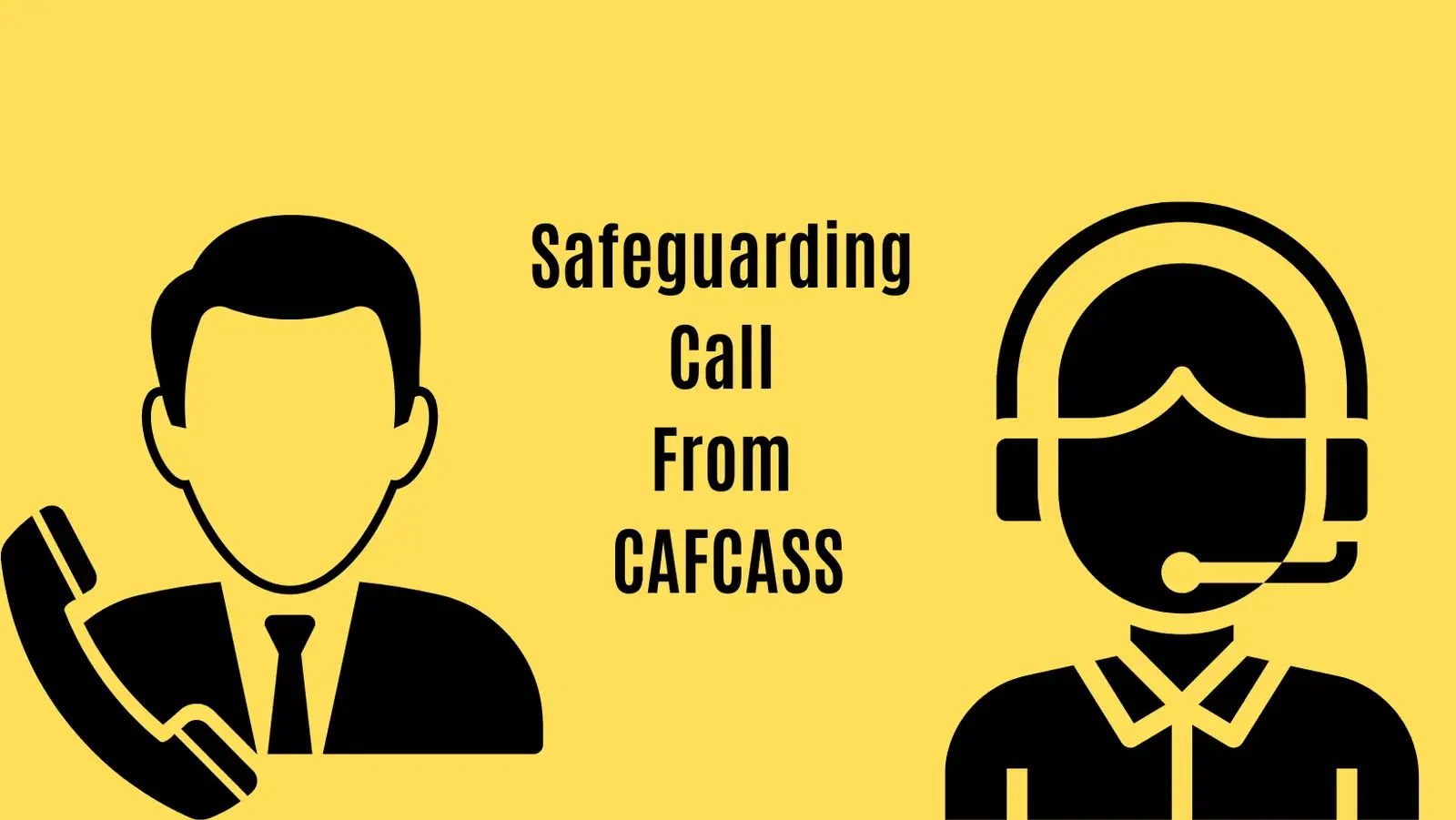When you’re going through family court, the CAFCASS safeguarding call is one of the first major steps in the process. And for many dads, it feels like a test – one you don’t get a second chance at.
You might not know what to expect. You might be worried about how you’re perceived. And you might be panicking about what this call could mean for your time with your child.
This guide is here to take the fear out of the unknown.
We’ll break down what actually happens during a CAFCASS safeguarding call, how to prepare, what questions you might face – and how to handle them in a way that protects your relationship with your child.
Jump to:
- What Is a CAFCASS Safeguarding Call?
- What Do CAFCASS Want to Know?
- How to Prepare for the Call (Step-by-Step)
- What to Say – And What to Avoid
- FAQs
- Conclusion
What Is a CAFCASS Safeguarding Call?
Before your first court hearing (usually the FHDRA), CAFCASS – the Children and Family Court Advisory and Support Service – will carry out a set of safeguarding checks. This includes:
- A telephone interview with both parents
- A Police National Computer (PNC) check
- Enquiries with the local authority (social services)
The purpose is to identify any safeguarding risks and provide the court with a short “safeguarding letter”. This letter will:
- Summarise what you and your ex told CAFCASS
- Flag any welfare or safety concerns
- Make early recommendations to the judge
These recommendations often influence interim contact arrangements – so it’s crucial to take this seriously.
👉 Read our full guide to the FHDRA – and what happens after the safeguarding call
What Do CAFCASS Want to Know?
CAFCASS are trained social workers. They’re not on either side – their job is to assess risk and focus entirely on the child’s welfare.
They’ll want to know:
- Where your child lives
- What contact arrangements (if any) are in place
- Whether there are any concerns about safety, violence, abuse, or neglect
- What your relationship with the child is like
- Whether you’re open to mediation or co-parenting
They will also note how you engage – including:
- Your tone, attitude, and ability to stay calm
- Whether you come across as child-focused or confrontational
- How you respond to any allegations made by your ex
How to Prepare for the Call (Step-by-Step)
The CAFCASS call is often the first time someone neutral hears your version of events. It’s not about winning or losing – it’s about showing you’re a stable, child-focused parent who takes the process seriously.
Here’s how to prepare in a way that keeps the conversation calm, focused, and constructive.
- Know Your Narrative
- Prepare a short, clear summary of your parenting history, contact timeline, and what arrangements you’re hoping for.
- Think Like CAFCASS
- They want to see that you’re calm, responsible, child-focused, and not a risk. Keep that lens in mind.
- Expect Allegations
- Many dads get caught off guard when false or exaggerated claims are mentioned. Don’t get defensive – explain your side calmly and stick to the facts.
👉 Need help responding to false allegations or preparing your defence? Our fixed-fee service includes statement review and support from a former social worker.
- Have Notes Ready
- Jot down key points beforehand. You can refer to these during the call – CAFCASS won’t mind.
- Avoid Emotional Language
- Don’t call your ex names. Don’t rant. Don’t point-score. Frame everything in terms of the child’s wellbeing.
- Show Willingness
- Be open to solutions like indirect contact, supervised visits, or temporary steps – if it helps move things forward.
👉 Get professional support preparing for your CAFCASS safeguarding call — includes 1:1 prep, document review, and expert strategy from a former CAFCASS insider.
What to Say – And What to Avoid
The way you speak on the call matters just as much as what you say. CAFCASS aren’t judging your vocabulary – they’re looking at your mindset, attitude, and focus.
This quick guide will help you steer the conversation in the right direction, avoid common red flags, and leave a solid impression that supports your case.
| Helpful Approaches | Red Flags to Avoid |
|---|---|
| ✅ Focus on the child’s needs | ❌ Attacking the other parent |
| ✅ Use calm, respectful tone | ❌ Getting emotional or raising your voice |
| ✅ Offer practical contact proposals | ❌ Saying “she’s lying” without evidence |
| ✅ Acknowledge challenges honestly | ❌ Blaming your child or sounding bitter |
Remember: CAFCASS don’t expect you to be perfect. But they do expect you to stay composed and put your child first.
FAQs
Most dads come into the CAFCASS process with more questions than answers. The stakes feel high, the rules feel vague, and there’s a lot of bad advice floating around online.
Below, we’ve answered the most common questions fathers ask us about CAFCASS calls, safeguarding checks, and what actually matters during early family court proceedings – based on real cases and insider experience.
What is the purpose of the CAFCASS safeguarding call?
To identify potential risks and provide the court with early recommendations based on interviews, police checks, and social services input.
What questions will CAFCASS ask me?
They’ll ask about living arrangements, parenting history, your child’s needs, your relationship with your ex, and any safety concerns.
What do CAFCASS look for during the interview?
Clarity, composure, child-focus, and consistency. They take notes on what you say and how you say it.
What if my ex makes false allegations?
Stay calm. Deny anything untrue firmly but respectfully. Provide context where possible – and raise any concerns in writing if needed.
👉 Learn how to structure your Position Statement if allegations are raised – don’t let one-sided claims go unchallenged.
Will CAFCASS speak to my child?
Not at the safeguarding call stage. Direct child interviews usually happen later, if ordered by the court (e.g. for a Section 7 Report).
Can I see the safeguarding letter?
Yes – it will be sent to both parties and the court, usually at least 3 days before your hearing.
What happens after the call?
The court will use the safeguarding letter to help guide the first hearing. It may lead to temporary contact arrangements, further assessments, or referrals.
How long do CAFCASS checks take?
The initial call is usually 30–60 minutes. The full safeguarding process (including police and LA checks) typically takes 2–3 weeks.
Conclusion: Stay Focused, Stay Prepared
The CAFCASS safeguarding call isn’t about passing a test – it’s about showing the court that you’re a safe, stable, and child-focused parent.
With the right preparation, you can walk into the call with confidence – and help the process move forward in the best interests of your child.
If you’re unsure what to say or how to respond, Dads’ Consultancy offers specialist support for fathers navigating CAFCASS and family court.
🧠 Insider Insight: Lach, our founder, is a qualified social worker who used to write Section 7 reports for CAFCASS — the very reports that influence court outcomes. Now he helps dads prepare for safeguarding calls and respond to false allegations. Learn more about Lach’s background.
👉 Book a free consultation and get help preparing for your CAFCASS safeguarding interview




